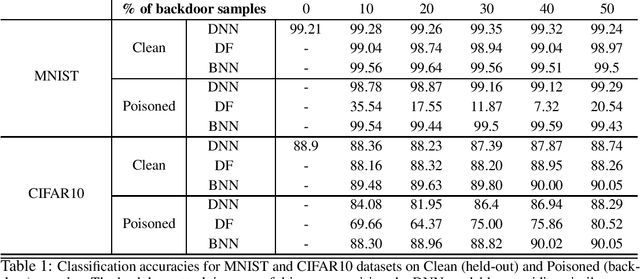Deep Probabilistic Models to Detect Data Poisoning Attacks
Paper and Code
Dec 03, 2019


Data poisoning attacks compromise the integrity of machine-learning models by introducing malicious training samples to influence the results during test time. In this work, we investigate backdoor data poisoning attack on deep neural networks (DNNs) by inserting a backdoor pattern in the training images. The resulting attack will misclassify poisoned test samples while maintaining high accuracies for the clean test-set. We present two approaches for detection of such poisoned samples by quantifying the uncertainty estimates associated with the trained models. In the first approach, we model the outputs of the various layers (deep features) with parametric probability distributions learnt from the clean held-out dataset. At inference, the likelihoods of deep features w.r.t these distributions are calculated to derive uncertainty estimates. In the second approach, we use Bayesian deep neural networks trained with mean-field variational inference to estimate model uncertainty associated with the predictions. The uncertainty estimates from these methods are used to discriminate clean from the poisoned samples.
 Add to Chrome
Add to Chrome Add to Firefox
Add to Firefox Add to Edge
Add to Edge